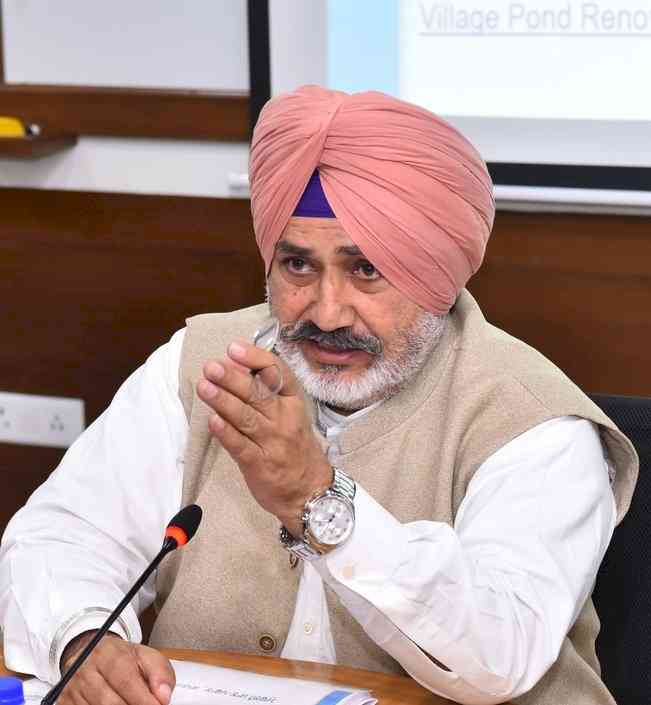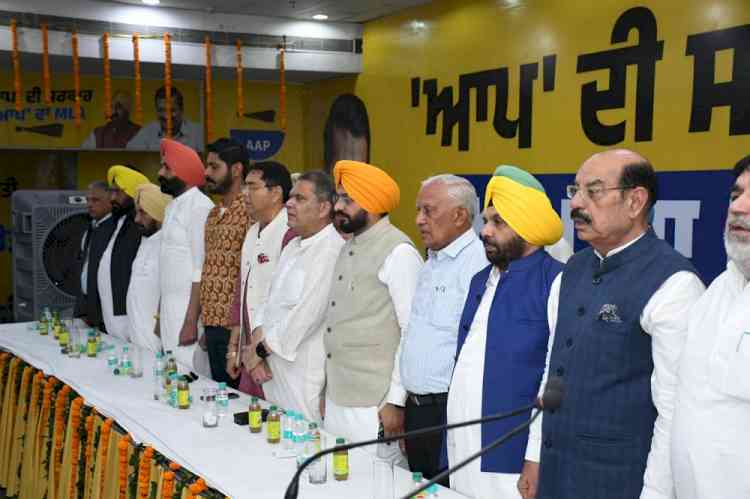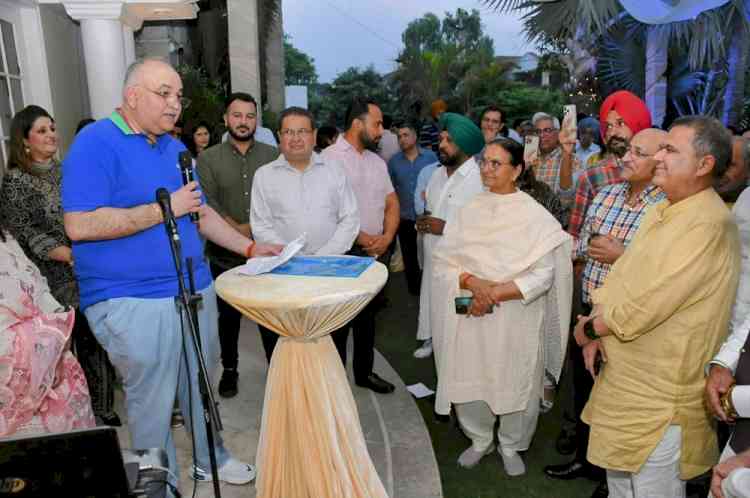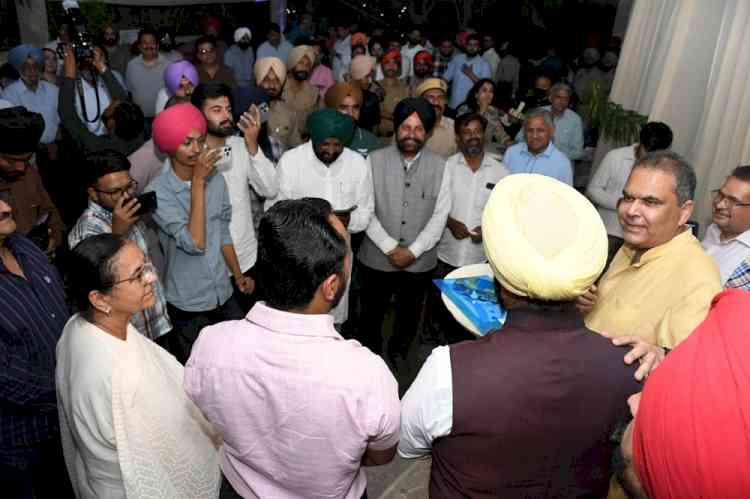Punjab dominates AIF Scheme Project sanctioning in India
Chief Minister Bhagwant Singh Mann led government has consistently demonstrated exceptional performance in promoting the Agriculture Infrastructure Fund (AIF) in the state. For several consecutive months, the state has maintained its numero-uno position in India, with the highest number of sanctioned projects under AIF. It was disclosed by Horticulture Minister Chetan Singh Jouramajra, here today.

Chandigarh, July 2, 2024: Chief Minister Bhagwant Singh Mann led government has consistently demonstrated exceptional performance in promoting the Agriculture Infrastructure Fund (AIF) in the state. For several consecutive months, the state has maintained its numero-uno position in India, with the highest number of sanctioned projects under AIF. It was disclosed by Horticulture Minister Chetan Singh Jouramajra, here today.
The Cabinet Minister informed that in a remarkable development, nine out of the top ten districts nationwide hail from Punjab. The state of Punjab has collectively sanctioned an impressive 14199 projects for farmers' welfare. This achievement not only solidifies Punjab's position as a frontrunner in the AIF Scheme but also shows the state's progressive agricultural ecosystem and advancements in post-harvest management infrastructure.
The top 10 districts that sanctioned the highest number of projects are, Chattrapati Sambhajinagar (formerly Aurangabad, Maharashtra) with 1,828 projects. The remaining districts belong to Punjab: Bathinda with 1575 projects, Ludhiana with 1464 projects, Patiala with 1440 projects, Sangrur with 1439 projects, Fazilka with 1367 projects, Sri Muktsar Sahib with 1100 projects, Ferozepur with 758 projects, Mansa with 723 projects and Moga with 681 projects.
While elaborating further, Chetan Singh Jouramajra said that these 14199 projects represent a massive investment of Rs.5938 crores by Punjab's farmers and agri-entrepreneurs. The AIF Scheme facilitates a wide array of post-harvest management activities, including: primary processing (atta chakki, oil expeller, spice processing, milling etc.), storage facilities (warehouses, cold stores, silos etc.), custom hiring centers (minimum of 4 implements), sorting and grading units, seed processing units, organic input production, crop residue management systems, compressed biogas plants, solar pumps, ripening chambers etc. Moreover, the scheme also allows for financing solar panels for existing eligible infrastructure.
The Cabinet Minister highlighted that the Department of Horticulture is serving as the State Nodal Agency (SNA) for AIF in Punjab, having established a dedicated Project Monitoring Unit (PMU) as per scheme provisions. To enhance accessibility, a WhatsApp helpline (90560-92906) has been set up and regular updates are shared on social media platforms.
He said that the impressive rankings reflecting robust coordination between the SNA, PMU and various stakeholders. Notably, the state's bankers have shown remarkable proactivity in promoting and sanctioning AIF projects, thus facilitating easier access to financial support for farmers and agri-entrepreneurs and establishing post-harvest management projects.
Shailender Kaur, Director Horticulture and State Nodal Officer for AIF informed that Under the AIF Scheme, beneficiaries can avail of a 3% interest subvention on term loans up to Rs.2 crores for 7 years. With a maximum interest rate of 9%, the effective interest rate becomes 6% or less. These benefits can be combined with all state and central subsidies and projects are eligible for benefits under the CGTMSE Scheme.
She emphasized a golden opportunity for Primary Agricultural Credit Societies (PACS) to establish community infrastructure in the state. By combining AIF with the PACS as MSC scheme by NABARD, PACS can access loans at an effective 1% interest rate.


 City Air News
City Air News 










